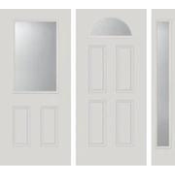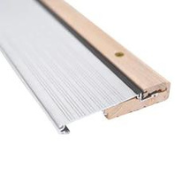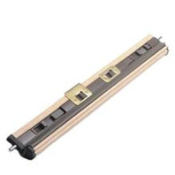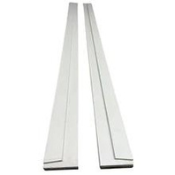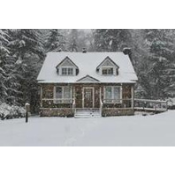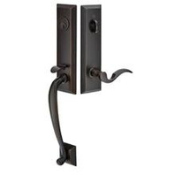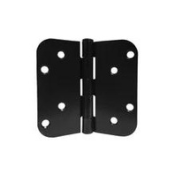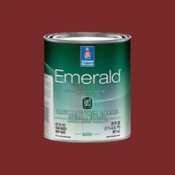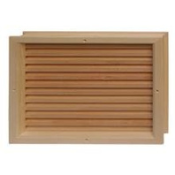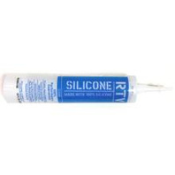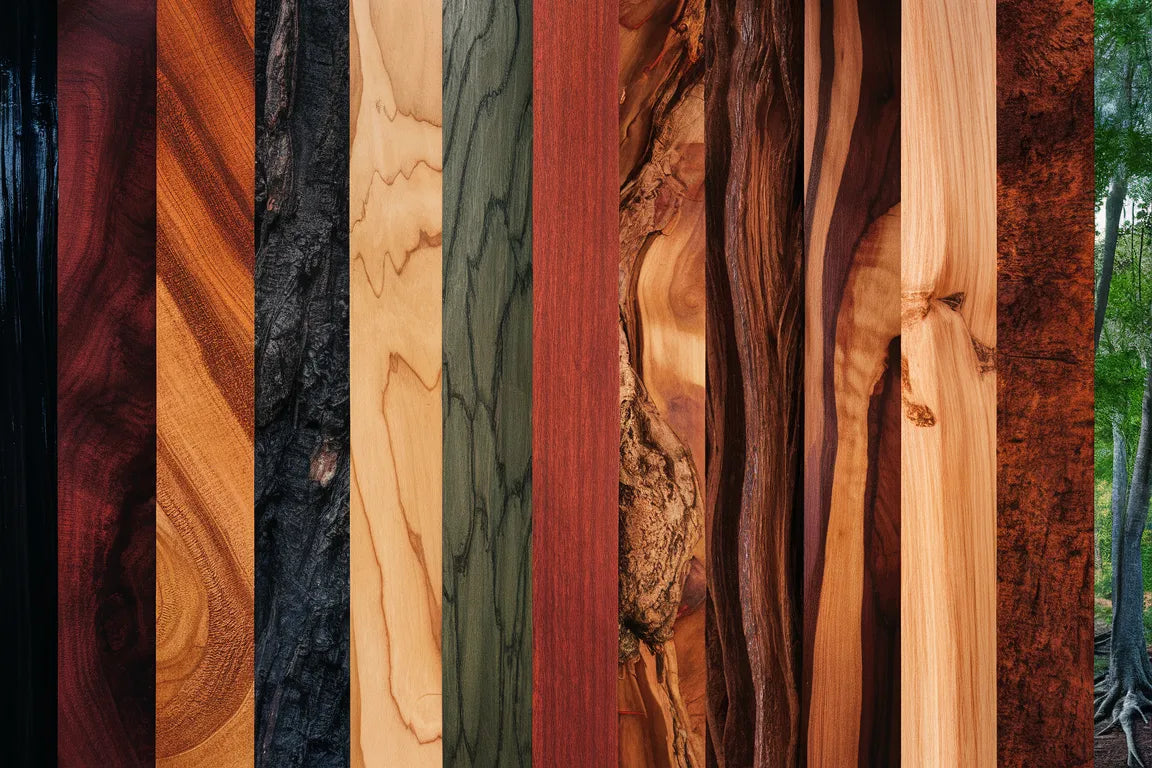
Choosing the best wood for your exterior door has always been a challenge for home designers and homeowners. Embark on a journey to find the best kind of wood with our comprehensive guide. Explore the rich aesthetics of mahogany, the timeless allure of teak, and more, each boasting unique characteristics for a blend of durability and style.
Key Takeaways
- Understand the characteristics of durable wood types like oak, mahogany, and teak for doors.
- Compare popular wood options, including hardwoods vs. softwoods, and aesthetic appeal.
- Evaluate the weather resistance and durability of different wood types, considering climate impact, maintenance requirements, and longevity.
- Assess your specific needs and budget to choose the best wood for your door, with guidance from expert recommendations.
- Make an informed decision to elevate your home's entry with a door that reflects your style and is built to endure.
Characteristics of Durable Wood Types For Doors
When it comes to choosing the best wood for your door, understanding the characteristics of different wood types is crucial. Each type of wood offers unique benefits that can enhance the durability and aesthetic appeal of your door solutions.
-
Oak
Oak is renowned for its exceptional resilience to warping and cracking. This hardwood is not only very strong but also resistant to decay, making it an ideal choice for high-traffic areas. Its natural strength ensures that your door remains sturdy and secure over time.

Mahogany offers a combination of excellent durability and a warm, inviting appearance. This hardwood is highly resistant to decay and rust, ensuring that your door maintains its beauty and functionality for years. Its rich color and fine grain make it a popular choice for those seeking a luxurious look.
-
Teak
Teak is another durable option, known for its natural strength and stability. This hardwood is particularly resistant to moisture and pests, making it an excellent choice for exterior doors. Its unique grain pattern and golden-brown color add a touch of elegance to any home.
Choosing the right wood type for your door can significantly impact its longevity and performance. Consider the specific characteristics of each wood type to make an informed decision.
Comparing Popular Wood Options
When it comes to choosing the best wood for your door, understanding the differences between popular options is crucial. Each type of wood offers unique benefits and drawbacks, making it essential to compare them based on various factors.
-
Hardwoods vs. Softwoods
Hardwoods, such as oak, mahogany, and teak, are known for their durability and strength. They are often more resistant to wear and tear, making them ideal for exterior doors. Softwoods, like pine and cedar, are generally more affordable and easier to work with but may not offer the same level of durability.
|
Wood Type |
Durability |
Maintenance |
Cost |
|
Oak |
High |
Moderate |
High |
|
Mahogany |
High |
Low |
High |
|
Teak |
Very High |
Low |
Very High |
|
Pine |
Low |
High |
Low |
|
Cedar |
Moderate |
Low |
Moderate |
-
Cost Comparison
The cost of wood can vary significantly based on its type and quality. Solid wood doors are at the higher end of the price spectrum, offering longevity and aesthetic value. In contrast, hollow core doors provide a budget-friendly option but lack the same level of durability and appeal.
- High-Cost Options: Oak, Mahogany, Teak
- Moderate-Cost Options: Cedar, Alder
-
Low-Cost Options: Pine, Poplar
-
Aesthetic Appeal
The aesthetic appeal of a door is often a key consideration for homeowners. Common hardwood door options include oak, mahogany, walnut, cherry, maple, and alder. Each wood offers distinct characteristics such as color, tone, and grain, allowing you to choose one that complements your home's style.
- Oak: Rich grain patterns, available in various finishes
- Mahogany: Warm appearance, adapts to both classic and contemporary designs
- Teak: Golden-brown color, smooth texture
- Pine: Light color, can be stained or painted
- Cedar: Natural reddish hue, aromatic qualities
Choosing the right wood for your door involves balancing durability, cost, and aesthetic appeal to meet your specific needs and preferences.
Weather Resistance and Durability

When selecting the best wood for your door, it's crucial to consider how well it can withstand various weather conditions and its overall durability. Different wood types offer unique advantages in terms of weather resistance and longevity, making them suitable for different climates and maintenance routines.
Choosing the Best Wood for Your Door
Delve into a curated selection of top-tier materials, from the sturdy reliability of oak to the weather-resistant charm of cedar.
-
Assessing Your Needs
Selecting the perfect wood door for your home involves weighing various factors, including aesthetics, functionality, and long-term durability. While solid wood options like mahogany and oak offer strength and timeless appeal, softwoods like cedar or hemlock may provide a better appearance and manageability. Consider the specific requirements of your home, such as climate and exposure to elements, to make an informed decision.
Hardwoods like oak and mahogany are usually more durable than softwoods, but they also come with a higher price tag. Assess your budget and prioritize the features that matter most to you.
-
Expert Recommendations
Timber stands out as a timeless and reliable choice when selecting the material for your wooden door. Experts often recommend hardwoods for their durability and aesthetic appeal. However, the best choice ultimately depends on your taste, location, and the specific needs of your home. Consult with door experts like us to get tailored advice and ensure you make the best decision for your entryway.
Choosing the best wood for your door can be a daunting task, but we're here to help! Whether you're looking for durability, aesthetics, or cost-effectiveness, our experts have got you covered. Visit Peasedoors to explore our wide selection of top-quality doors and get personalized advice from our door specialists.
Conclusion
Choosing the best wood for your door is a crucial decision that impacts both the aesthetics and durability of your home. This comprehensive guide has explored the characteristics of durable wood types, compared popular wood options, and delved into the importance of weather resistance and durability. By understanding these factors, you can make an informed choice that not only enhances the beauty of your home but also ensures long-lasting performance. Whether you opt for the timeless elegance of mahogany, the sturdy reliability of oak, or the weather-resistant charm of cedar, selecting the right wood will transform your entryway into a statement of craftsmanship and resilience.
Frequently Asked Questions
1. Which type of wood is best for a front door?
Choosing the best wood for a front or external door depends on factors like durability, aesthetics, and weather resistance. Hardwoods such as mahogany, oak, or cherry are popular choices for their strength and timeless appeal. Softwoods like Cedar or Hemlock may offer better appearance and manageability.
2. Why choose wood for exterior doors?
Wood is one of the most attractive and lucrative materials for home design due to its durability, availability, and wide range of choices. It offers a blend of strength and aesthetic appeal, making it a favorable material for wooden doors.
3. What are the characteristics of durable wood types for doors?
Durable wood types for doors include oak, mahogany, and teak. Oak is known for its strength and resilience, mahogany for its rich aesthetics and stability, and teak for its weather-resistant properties.
4. How do hardwoods compare to softwoods for door construction?
Hardwoods, such as oak, mahogany, and cherry, are generally stronger and more durable, making them ideal for doors. Softwoods like cedar and hemlock are easier to work with and may offer a better appearance but are usually less durable than hardwoods.
5. What factors should I consider when choosing wood for my door?
When choosing wood for your door, consider factors like durability, aesthetics, weather resistance, maintenance requirements, and budget. Assessing your specific needs and consulting expert recommendations can help you make an informed decision.
6. How does climate impact the choice of wood for doors?
Climate plays a significant role in choosing wood for doors. Some woods, like teak, are more resistant to moisture and weather changes, making them ideal for humid or rainy climates. Others, like oak, perform well in various climates but may require more maintenance in extreme conditions.


